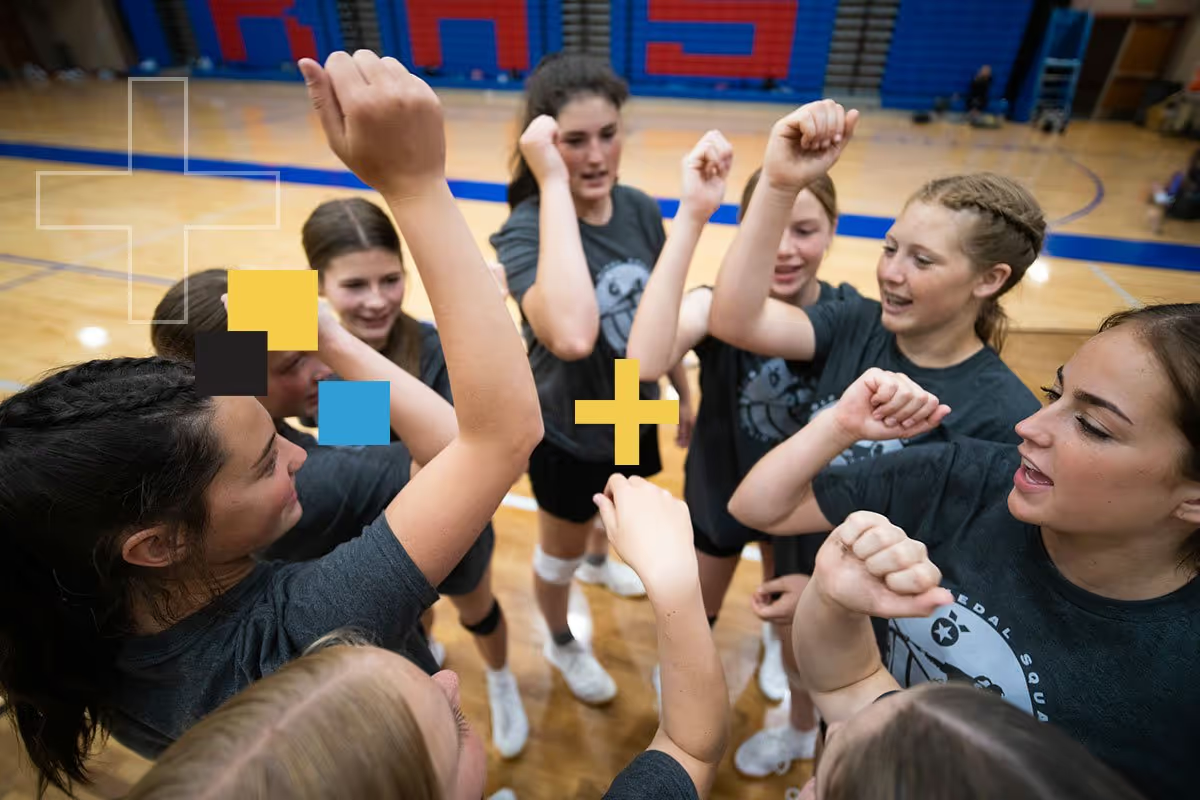When Do Volleyball Timeouts Work Best?
Every volleyball coach who's ever coached in a match has been faced with this internal question -- "Should I call a timeout right now?" Then, instants later, that coach must answer the question and live with the results. But, regardless of a coach's decision to call a timeout or not in a specific situation, we wanted to look into the effectiveness of timeouts at different levels throughout the world.
Do Timeouts Work?
To help us determine if timeouts work, volleyball analyst Joe Trinsey recently conducted two studies about timeouts. One study looked at data from the NCAA's Pac-12 conference. The other study looked at FIVB competition.

In this dataset from Pac-12 matches, we see that timeouts slightly helped the receiving team if the timeout was called early in a run. If the timeout was called after a long run of points had already been scored, the receiving team's sideout percentage worsened.

When looking at sideout percentage stats from FIVB matches, we see the exact opposite results from the Pac-12 chart. Sideout percentages were worse when timeouts were called after short runs of points, while those sideout percentages got much higher when timeouts were called after long runs of points.
Another study, with data from the Big Ten Conference, Conference USA, and the Southeastern Conference, shows that timeouts negatively impacted sideout percentages.

After looking at the Pac-12 and FIVB numbers, Joe Trinsey stated, "It's all just really random. I'm positive that some timeouts had to have helped in some scenarios, but we also have to admit that sometimes a timeout hurts the receiving team because it allows the serving team to set up and reinforce a defensive scheme. But mostly, there is no magical run-stoppability."
So... When Should Timeouts Be Called?
Knowing that timeouts won't dramatically increase your odds of siding out on the next play (if there is any increase at all at your level), when and how should you utilize your allotted number of timeouts?
We asked members of our Gold Medal Squared advisory staff, "What are the factors you weigh (or don't weigh) when deciding if you should call a timeout or not? Which of those factors is the most important?"
Factor #1: Is my team playing well? Do they seem like they are competing well, connected, and thriving?
If the answer is yes, then I’m probably not going to call a timeout, even if we’ve lost the last few rallies.
If the answer is no, then I am much more inclined to call a timeout, regardless of the score.
Factor #2: Has something with the match changed significantly? Has momentum shifted against us? Is there a tactical adjustment that needs to be made? In other words, if there is something that urgently needs to be addressed that cannot be addressed between rallies? If so, we need a timeout.
Factor #3: Do they need a break? Maybe they’re playing well and competing hard, but there have been a few long rallies and my team just needs a break
Rob Browning, Saint Mary's College, 5 NCAA Tournament Appearances
Timeouts are hard. Personally, I don’t believe in their impact on a game. There is data suggesting timeouts aren’t having an effect on expected sideout percentages. So, it takes a lot for me to call a timeout. I prefer to wait for an opportunity to teach. Perhaps we are facing something we have not seen before. A change in our opponent’s game plan. Could be we need a reminder of a specific part of our scouting report. Teaching is not only systems, but situations where better communication and direction may be needed. Seldom do we call a timeout to ‘change/break the momentum.’ Like all coaches, I’m the Chief Reminding Officer. As such, if we need reminding, we can call a timeout. Otherwise, I get out of their way and let them play.
Jason Watson, University of Arkansas, 2021 SEC Coach of the Year
Timeouts in general I think are overrated mainly because they’re taken by necessity something bad is happening to your team and you feel the need for a break). That’s a bad spot to be in any time you’re competing. The best times for a timeout, I think, are when you think you can ice a server or when there’s a controllable behavior on your side of the net that will switch the odds in your favor. Maybe the next best is if you feel there’s an emotional connection you can make with your player that will impact your team. But mostly I think they’re done out of necessity and have minimal impact.
Tom Black, University of Georgia, 2022 SEC Coach of the Year
I'll typically call a timeout when (in order of importance, for me):
- I see a match tactic that we aren't executing correctly or we want to change, and it can't wait for the set break.
- I see bad body language from the group, or I hear some non-productive conversations, and I want to change the tone on the court.
- We've played a really long rally and lost the point, and having an extra 30 seconds to recover physically would help us be better siding out in the next rally.
- Just a coaching instinct, after a lot of years of calling or having failed to call timeouts. Just going with my gut, as it were.
Chris McGown, Gold Medal Squared, 2014 AVCA National Coach of the Year







